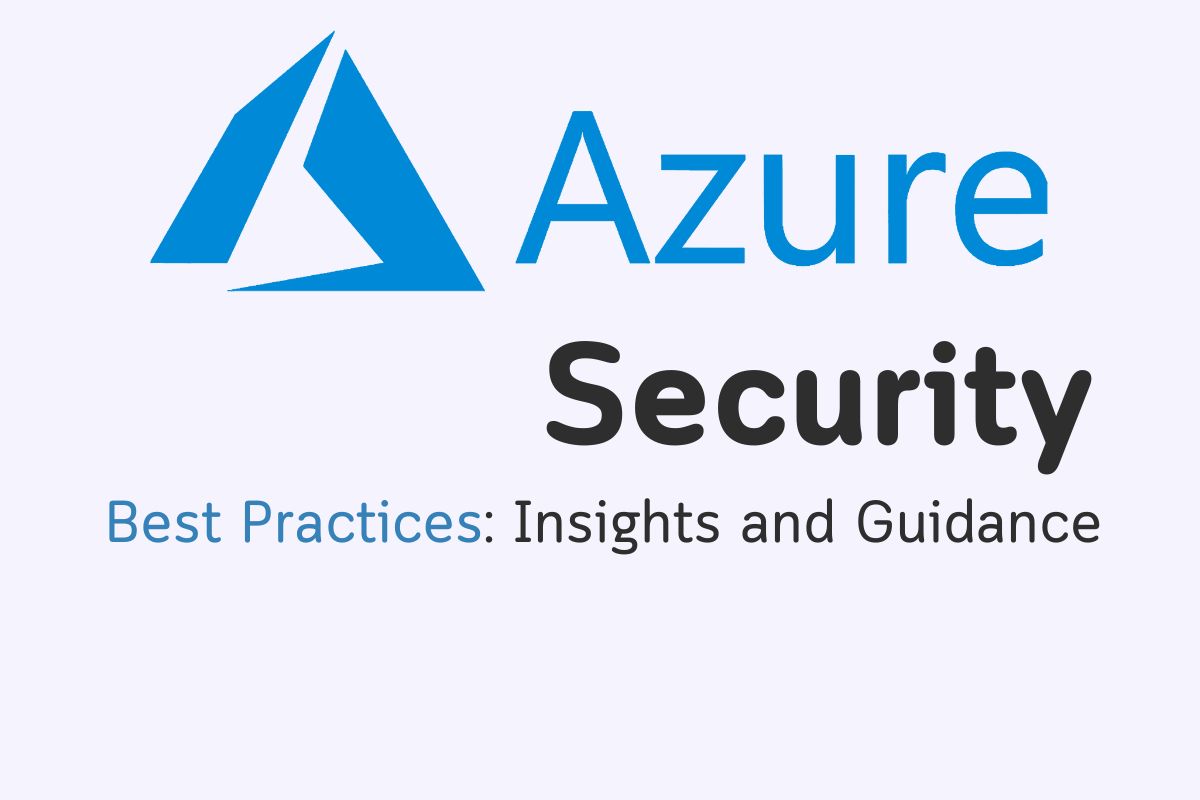Welcome to another informative blog where we’ll be diving deep into Azure’s top security best practices. In the world of cloud computing, security is paramount, and Azure offers a range of powerful tools and features to help you safeguard your data and applications. In this article, we’ll explore seven essential azure security practices that you should implement for a robust Azure environment. Let’s get started!
Encrypt Data at Rest and In-Flight
First on our list is the fundamental practice of encrypting data both at rest and in-flight. Even if an attacker gains access to your database, your data remains protected. Azure provides the Transparent Data Encryption (TDE) feature, which encrypts data at rest by default. Azure manages the encryption keys, and you can also bring your own for added security. Additionally, make sure to secure data in transit with Transport Layer Security (TLS) to ensure secure communication.
Restrict Access to Your Database
Protecting your database from unauthorized access is a cornerstone of Azure security. Azure allows you to configure firewalls for your databases, enabling you to control which IP addresses are allowed to connect. This is a powerful mechanism for blocking unwanted traffic during development and testing phases. For production environments, consider using Azure Private Link to connect to databases securely, shielding them from external threats.
Secure Access to Your Virtual Machines
If you’re using virtual machines in Azure, it’s crucial to control access effectively. Rather than leaving RDP or SSH ports open, deploy your VMs within a virtual network. Azure Bastion is a fantastic tool that allows you to securely connect to your VMs without exposing them to the public internet. By eliminating the need for public IP addresses on your VMs, Azure Bastion enhances security.
Protect Your Application Secrets
Safeguarding application secrets, such as API keys and connection strings, is a critical step in Azure security. Avoid storing these sensitive credentials in your codebase. Instead, utilize Azure Key Vault, a centralized repository for secrets, keys, and certificates. Azure Managed Service Identity allows your services to securely connect to Key Vault without exposing sensitive information, improving overall security posture.
Implement a Separate Azure Subscription for Production
Isolating your production environment from development and testing is a smart practice. By creating a dedicated Azure subscription for production, you reduce the risk of accidentally mixing environments and ensure the integrity of your data. Leveraging Role-Based Access Control (RBAC) within separate subscriptions allows you to finely control access and maintain a robust security framework.
Leverage a Web Application Firewall
Web applications are frequent targets for cyberattacks. Protecting them is essential. Implementing a gateway service like Azure Front Door or Application Gateway combined with a web application firewall provides advanced security capabilities. These tools can detect and block threats such as SQL injection and cross-site scripting attacks, enhancing your web application’s resilience.
Harness the Power of Azure Security Center
Last but not least, we arrive at a game-changer: Azure Security Center. This powerful service offers insights into your security status, actionable recommendations, and the means to implement these recommendations directly. Azure Security Center allows you to periodically assess the security of your resources, receive alerts, and swiftly address any vulnerabilities. It’s your trusted partner in keeping your Azure environment secure.
ePATHUSA: Your Trusted Partner in Azure Security
As you embark on your journey to implement these Azure security best practices, consider partnering with ePATHUSA. With a decade of experience in cloud solutions, ePATHUSA stands ready to assist you in your quest for a secure Azure environment. Whether it’s encrypting data, securing virtual machines, or implementing Azure Security Center, ePATHUSA’s expertise ensures a seamless and effective security strategy.
From configuring firewalls to setting up Azure Private Link, ePATHUSA understands the intricate details of Azure’s security offerings. As you endeavor to safeguard your data, applications, and users, ePATHUSA’s guidance will prove invaluable. With our support, you can confidently adopt these security best practices and leverage Azure’s full potential while keeping cyber threats at bay.
Conclusion
In the ever-evolving landscape of cloud security, implementing these best practices in your Azure environment is crucial. From encrypting data to utilizing Azure Security Center, each step plays a pivotal role in fortifying your defenses. By partnering with ePATHUSA, you can rest assured that your Azure security strategy is in capable hands. So, embrace these practices, enhance your security posture, and chart a course toward a more secure cloud journey. Stay secure, stay empowered!
Security is not a product; it’s a process. It’s not about being perfect, it’s about reducing risk.
– Robert E. Davis
When it comes to Azure security best practices, this quote encapsulates the essence of the approach you should adopt. Azure provides a robust platform for building and deploying applications, but ensuring the security of your resources requires continuous effort and adherence to well-established security practices.
– Suman Kondla ( Azure Solution Architect)
















